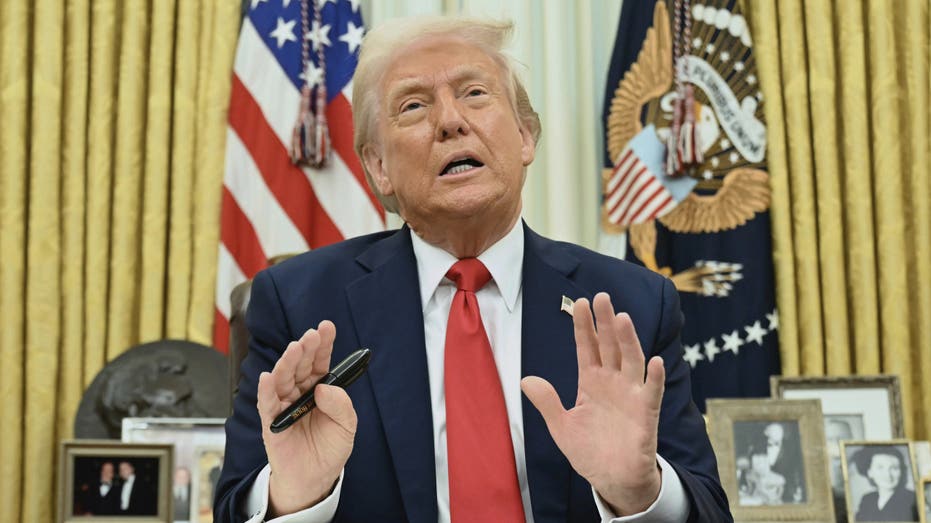Trump’s ‘Liberation Day’ Could Spark a New Golden Age for American Workers

Sarah Johnson
April 1, 2025
Brief
President Trump declares 'Liberation Day,' launching reciprocal tariffs to challenge global trade imbalances and support American workers, aiming to restore prosperity and fairer trade conditions.
President Trump has taken a bold step by declaring Tuesday as Liberation Day, signaling the start of a fierce battle to level the global playing field for American workers and businesses through reciprocal tariffs. While this move promises short-term disruptions, Trump insists it’s a necessary step to restore prosperity and usher in what he calls a new Golden Age.
For decades, the United States has been stuck in what some have called unilateral free trade agreements—essentially letting foreign companies flood American markets while U.S. exporters face steep barriers abroad. The consequences? Sluggish wage growth, job losses, and diminished demand for American goods. Trump seems determined to break this cycle.
In invoking comparisons to historical figures like Ulysses S. Grant, Trump’s strategy mirrors an ironclad resolve. Grant famously declared during the Civil War, "I propose to fight it out on this line if it takes all summer," refusing to retreat despite setbacks. Trump, too, appears prepared to weather criticism as he pushes for these economic reforms.
Critics have labeled Trump as anti-free trade or accused him of sparking a trade war, but his administration argues the opposite: that America has been on the losing end of a trade war waged by other nations for decades. Reciprocal tariffs, they claim, are a way to force foreign governments to lower their barriers and finally create fairer trade conditions.
Some of the tariff rates announced are eye-opening, exposing just how deeply entrenched foreign protectionist policies are—even among allies like Canada, whose trade barriers in certain industries equate to a staggering 300 percent tax. In some cases, U.S. exporters even have better access to Russian markets than Canadian ones. If that doesn’t make you raise an eyebrow, I don’t know what will.
The Trump administration is betting that most nations won’t risk losing access to American consumers, which ultimately gives the U.S. a significant upper hand. While trade wars are a lose-lose game, Trump’s team insists that reciprocal tariffs, combined with domestic measures like tax relief and regulatory cuts, will help soften the blow for American workers and businesses.
At the heart of this strategy is a commitment to free trade—not protectionism. The administration claims that if other nations reduce their tariffs and barriers, the U.S. will follow suit. Liberation Day, then, marks the start of an effort to end the one-sided policies that have disadvantaged American exporters for far too long.
Whether this bold gamble pays off remains to be seen, but one thing is clear: Trump is in it for the long haul. Like Grant, his message seems to be "fight it out," no matter how tough the road ahead.
Topics
Editor's Comments
Trump’s Liberation Day feels a bit like ripping off a Band-Aid. Painful at first, but maybe just what the economy needs to heal decades of trade imbalances. Also, the fact that Canada’s trade barriers rival the tax rates of a small nation’s budget—well, that’s a plot twist I didn’t see coming.
Like this article? Share it with your friends!
If you find this article interesting, feel free to share it with your friends!
Thank you for your support! Sharing is the greatest encouragement for us.



